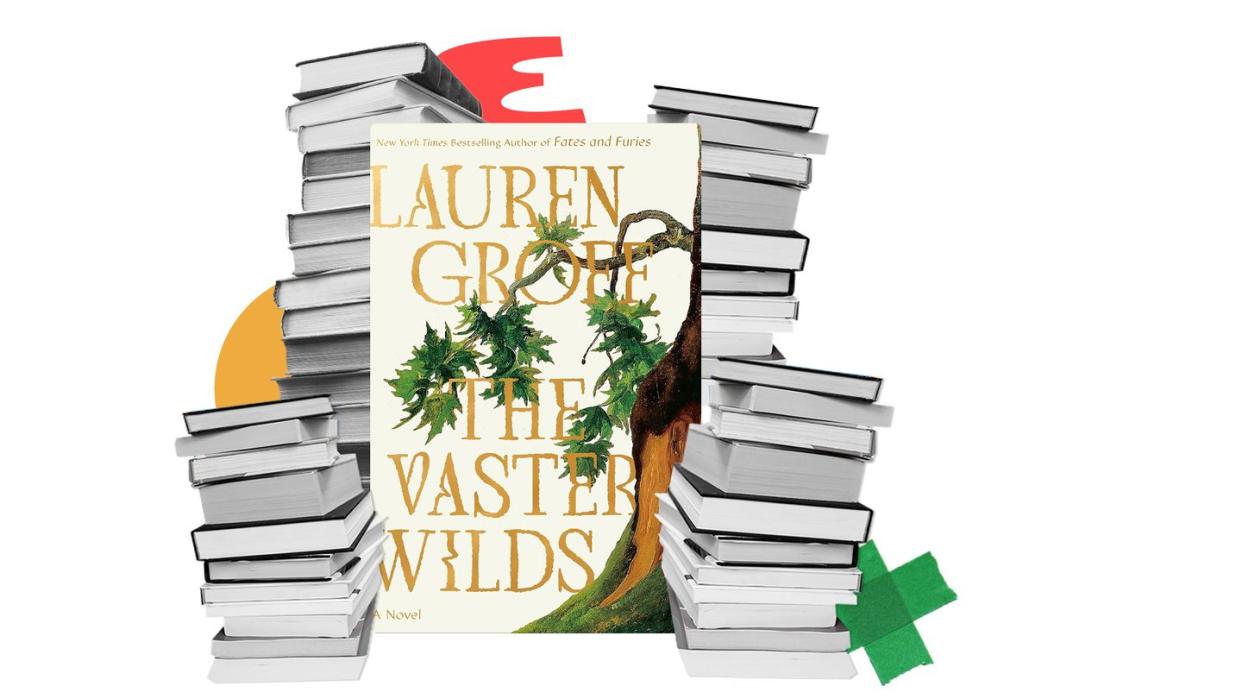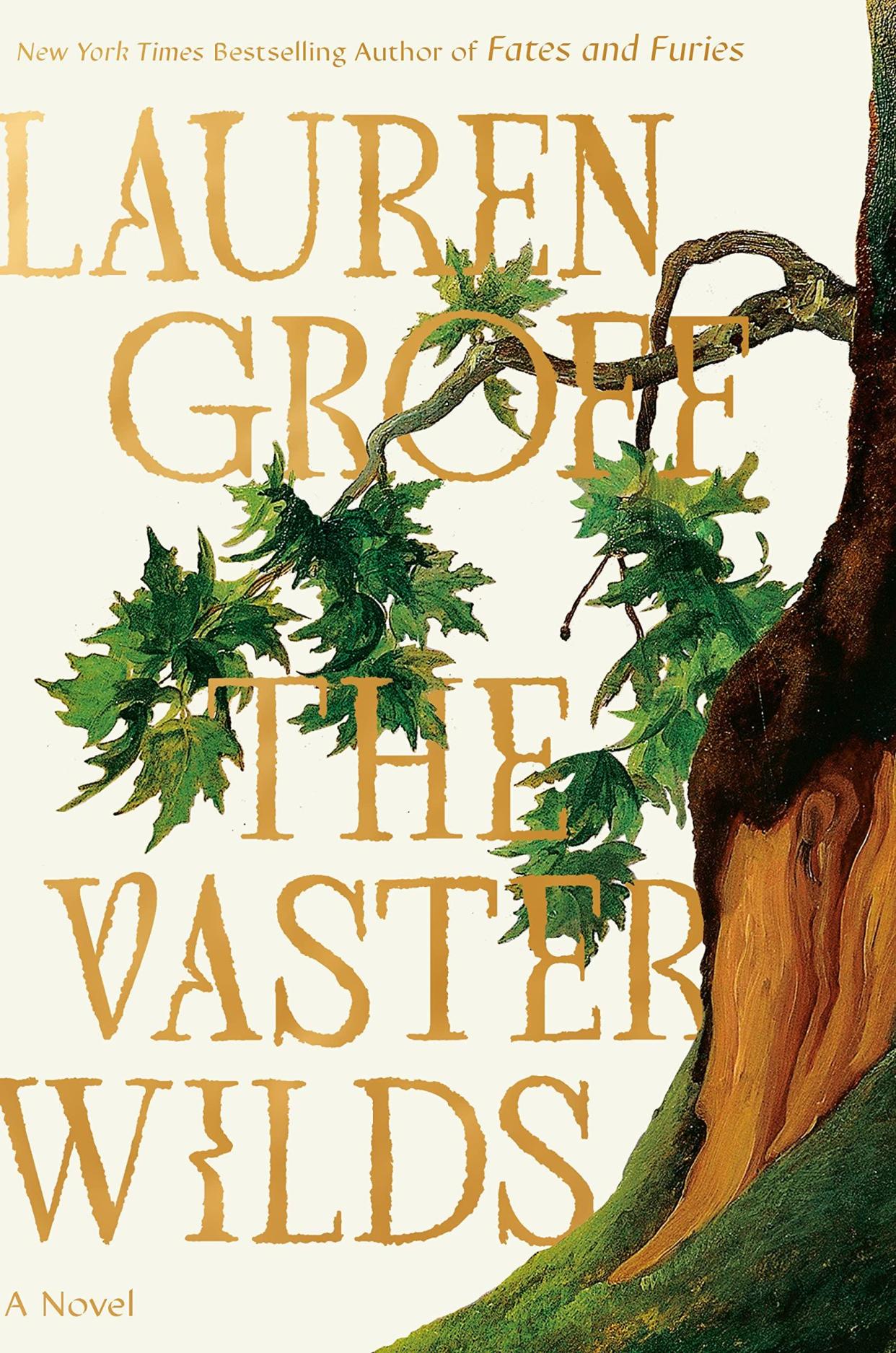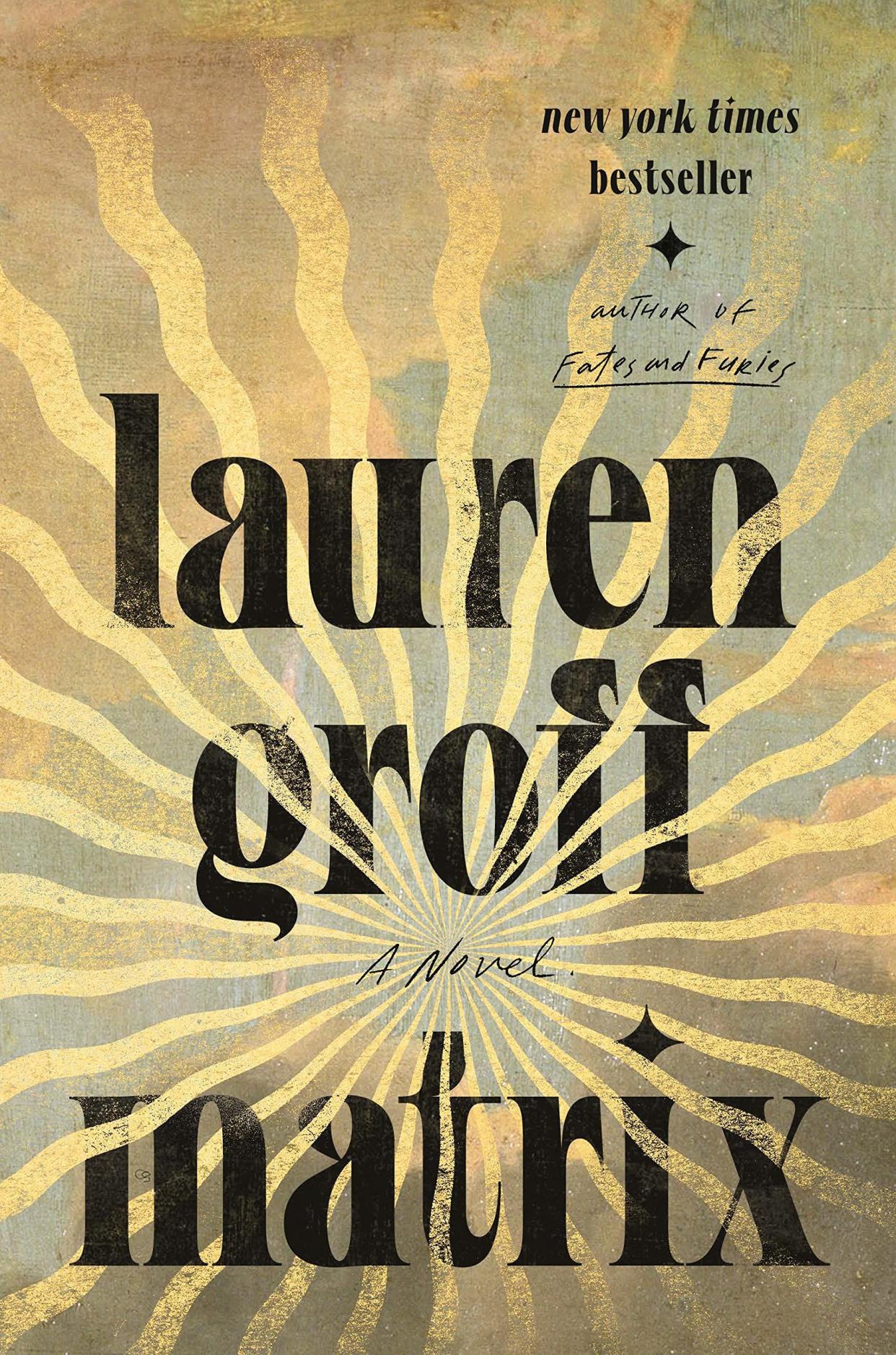Into the Wild With Lauren Groff

"Hearst Magazines and Yahoo may earn commission or revenue on some items through these links."
Lauren Groff’s new novel, The Vaster Wilds, begins with a high-octane escape: under the cover of darkness, in the dead of a gruesome winter, a young woman flees colonial Jamestown, bound for parts unknown. Pursued by English soldiers and menaced by the brutal New England winter, her frantic flight threatens to kill her at every turn—but to remain in the settlement, riven by plague and famine, would be unbearable. For this young woman, known to readers as “the girl,” an uncertain future is preferable to certain death.
Students of American history know the story of Jamestown’s Starving Time, but history doesn’t tell it as Groff does. “History is made almost entirely of the narratives of the men who made it through,” the author tells Esquire, “and yet life is made of a very subtle and deep weave of people who are forgotten by history and forgotten by time, and who lived intense lives, every bit as intense as our lives, who vanish off the face of the earth when they die. And those people are just as interesting as Napoleon.”
Inhabiting the life of a young woman “forgotten by history and forgotten by time” is at the center of Groff’s project with The Vaster Wilds. Through the girl’s desperate flight across the forbidding wilderness, paired with flashbacks to her often desolate life as a lowly servant, Groff enlivens the dark crevices of colonial history. But the ambitions of The Vaster Wilds are loftier than this—in fact, they’re downright cosmic. As the girl heads north on foot, she questions everything she’s been taught about the new world, its Indigenous people, and how to understand God. Groff writes, “She sensed how deep her ignorance ran and felt dizzy by all that remained to be learned.” Deranged with hunger and cold, the girl receives a hard-won education from the woods, where the voices of birds, angels, and God ring in her ears. The result is an ecstatic transformation—one that’s a haunting and holy experience to read and behold.
Groff Zoomed with Esquire from her home in Florida to discuss captivity narratives, historical fiction, and how to avoid writing "tourism in time." This interview has been edited for length and clarity.
ESQUIRE: You’ve said, “This novel is the book of mine that I hold closest to my heart.” Why is this one so dear to you?
LAUREN GROFF: I think very book is its own deep project, and this one's project is to describe my intensely personal spirituality in a way that feels radically vulnerable and terrifying. That’s why I hold it closest to me, because in some ways, it’s a self-portrait in a way that the other books aren't.
How did writing Matrix, another intensely spiritual novel, prepare you to write The Vaster Wilds?
I wrote them at the same time, actually, so they were speaking to each other under the surface. They seem radically different, almost as though two different writers had written them. But it's because sometimes when I write multiple books at the same time, they're pushing against each other. Matrix is obviously Catholic, because that was the religion of Marie de France, and of course Protestantism protests Catholicism in a very profound way. This book was actually taking the Protestant mindset of the English and seeing the ways that it was trying to subvert Catholicism, but also becoming its own cage that my protagonist found herself caught in. I don't know how Matrix prepared me for writing this book other than I realized that I had two defined, very particular, very different modes of telling these stories, because eleventh century Catholicism was so profoundly different from the Protestantism of the early 17th century. Even the rhythms of the language had to be different. These books were written in concert and in opposition at the same time, which was really fun.

amazon.com
$23.80
How do you see The Vaster Wilds in conversation with American captivity narratives? Were there ways in which you wanted to change or subvert that conversation?
I was fascinated for a long time by captivity narratives—they're an incredible document about the mindset of the time. But also, even though a lot of these narratives were actually gathered and edited and written by men, you can sometimes see the actual living women poking up through the warp and weave of the men's tales, and you can feel their suffering. I thought that was really incredible. But at the same time, most of them were the propaganda of men, written as a justification of the conquering and genocide of this continent. Of course, to a 21st century mind, at least a good one, that's a horrible thing. So you have this contradictory text that you're holding in your hand, and it's really fascinating. I wanted to write an anti-captivity narrative, and in order to subvert that way of telling the story, I actually looked to a different narrative: Robinson Crusoe. In some ways that's the masculine anti-captivity narrative, because he’s alone on the island. I wanted to see if it would be possible to subvert this American text by making it almost a female Robinson Crusoe.
It was intriguing to read The Vaster Wilds and feel my own expectations about captivity narratives bucking against what you’ve written. I was so often waiting for someone to intercept the girl, but the novel went in a different direction. Why did it feel right to you that her journey would have so little human friction?
In the first eight or so drafts, it was different—there were a lot more interactions with other human beings. But sometimes you need to listen to the book that wants to be written as opposed to the book that you want to write, and the book that wanted to be written was about spirituality. It was about ecstasy and pain joined in a marriage within the same body. It was about the girl breaking a lot of preconceived ideas and biases about herself and the world around her. That narrative required no other people to talk to, other than the voices in her head, the angel, God, and the birds. For a long time, I thought I was writing a completely different book than the one I ended up writing, but you have to listen to the book, or else it just won't behave for you.
I was also thinking about this as a classic man against nature story, which is such an American tradition, except in this case, it's girl against nature. How did changing the gender of the protagonist change the familiar structure of that story, and all the tropes and ideas we associate with it?
If you think about American literature, it's all man against nature. But it was really important that I not follow along pre-cut grooves in The Vaster Wilds. One way of doing that was making the character an illiterate girl who would not have been considered fully formed as a citizen or a human in her own society. She would have been overlooked because she’s a servant and a foundling. A lot of the narratives would never have paid attention to someone like this. History is made almost entirely of the narratives of the men who made it through, and yet life is made of a very subtle and deep weave of people who are forgotten by history and forgotten by time, and who lived intense lives, every bit as intense as our lives, who vanish off the face of the earth when they die. And those people are just as interesting as Napoleon. They're just as worthy—worthy and profoundly integral to the creation of where we are now. Every single person who lived and is forgotten has made where we are and who we are.
There are little moments in the book where you mention other women who’ve run off or suffered terrible fates. You could tell a thousand stories of forgotten people.
Isn't that beautiful? Isn't that exciting? I've been deeply in love with the work of Saidiya Hartman, who writes about African Americans. I think hers is a joyous way to look at people whose lives truly were not deemed interesting enough to even put into the historical record. Through rigorous academic searching, she creates a texture like an actual tissue of life, almost bringing them back into the light after they passed it into the darkness. That’s one of the most profoundly moving things that any academic is doing.
And part of the joyous project of literature, too.
That's exactly right. Literature is democratic. Literature is about the people who are forgotten.
As I was reading, I was enthralled granularity of detail. I'm thinking of the moment, for example, when the girl uses duck fat to warm her hands after she’s lost her gloves. How did you learn about all these ways that she could survive in the wilderness?
I'm telling on myself a little bit, because I'm actually such a survivalist in my head. Whether or not I would actually be able to make it more than a day is a complete other thing. But I have a whole library of survivalist books, and I actually went to survivalist camp for Harper's once. I love any narrative about how to survive in wilderness. I love Naked and Afraid. When I was a child, My Side of the Mountain took over my life for a few years. It's all along the same spectrum of what Bruno Bettelheim said about fairytales, which is that they act as an inoculation for children against the existential threats in their own lives. Survivalist stories act as an inoculation against my own fear and dread of climate change, of being able to survive it, of being able to help my family survive it. All of this is assuaged a little bit by these narratives of survival.

amazon.com
$13.73
One of the glorious magic tricks of this novel is the way you braid a narrative very much of its place and time with ideas that feel uncannily contemporary. I’m thinking, for example, of the girl musing, “What woman has not, walking in the dark of the street or on a path deep in the countryside, sensed the brutal imaginings of a man watching her from his hidden place?” Where do historical fiction and contemporary sensibilities meet, for you? How did those two things interact in this project?
It actually took me a very long time to come to terms with the fact that I really like to write historical fiction, because there’s a literary bias against it. I don't think he's the source of it, but Henry James had such snobbery about historical fiction. He wrote this one amazing letter basically saying, “Why would you ever write historical fiction? You can never touch the mindset of the people at the time.” That still trickles through today. But in the end, I’m so interested in the way that the eras speak across the distances and the way that history cycles. It’s not a flat line. It’s more like a twist of rope. What I didn't want to do is write tourism in time or write a false catharsis, which lets the contemporary reader off the hook. I wanted to implicate the reader in something that’s urgent and ethically important. If that's not a common goal when one writes historical fiction, one can write tourism in time.
Can historical fiction be a useful tool in helping us rethink or rewrite the past?
In some historical fiction, there's a conservative impulse—it’s seen as a way to escape rather than a way to engage. But that art is the thing that makes us engage whether we want to or not. And so historical fiction is maligned because of this feeling of escapism, and that's fair. But then you get to something like Hillary Mantel's works, which are works of profound moral urgency. Or think about Tolstoy writing War & Peace—that’s a historical fiction. What he’s doing is asking the biggest possible human questions, and he's doing it using the past as a tool. You can get narratives that serve as entertainments, which is beautiful in and of itself, or you can have historical fiction that’s hard in the way that literature should be hard, in my opinion.
You mentioned that this book was a way of exploring your own spirituality. Now that you've completed the book, how has it changed the way you think about those ideas? Have you arrived in a different place?
That's always the hardest question. I don’t start a novel unless I'm sure that there are so many questions at its center that I'll never be able to see all of the questions. That's what makes a novel a novel for me, as opposed to a short story. But the thing about writing fiction, unfortunately, is that it never answers questions. If one is doing it well, it just asks more and more questions of you. But something that did change—and it's not a radical change—is that I’ve been paying much more attention and love to the animal body, to the material body, to the tangible and sensory texture of everyday life. That’s where the joy is, right now. Walking very slowly down the street and being able to touch the glossy leaves and feel the sun on the face. I'm really paying a lot more attention to the animal body. I think that's where God exists.
When Matrix came out, you said in an interview that Matrix and The Vaster Wilds were part of a trilogy of projects about how we suffer because misread Genesis. Have you started on the third project?
Yes, I have. I've written so many drafts of this book. Every draft is a failure, which is good. I like failure. Failure is wonderful. Failure teaches you what you don't know, but I just had to scrap the last draft, so it's possible that this may be my white whale. That's fine. And not every book that needs to be written needs to be published, either. So this is the book that needs to be written right now, over and over again, in profoundly different ways every single time. But if I can't make it so that it's communicating something to someone outside of me, then it doesn't deserve to be in the world. And that’s fine.
Let’s end this conversation somewhere fun. Tell me three things about your research process. What did you discover that most surprised you, delighted you, and disgusted you?
I actually think that the nugget of this book was a 2013 article in Smithsonian Magazine about how we're not allowed to say the word “cannibalism” anymore. I was told by a medieval researcher that because it has a lot of racist overtones, it’s not a good word. I also learned that there was actual human eating in the Jamestown settlement, so that was the thing that both surprised and disgusted me the most. For ten years now, I’ve thought, “How could people have survived that?” The famine, the diseases, the weird class issues that happen whenever English people are together—all of these things conspired to make the Starving Time. And out of the Starving Time, there was human eating. So that was both surprising and disgusting.
As for delightful, something amazed me when I was researching Native American food sources. I got so excited about ground nuts, which are not peanuts, but they're tubers, like peanuts. The sprouts are like peas above ground and tubers below ground. I got so excited that I bought some, and now we have a little patch of ground nuts. For when the apocalypse comes, it's very exciting. I just thought it was amazing that there's this thing most of us don't even know exists, but it's a source of really excellent calories if one needs them. And it's everywhere, right? It's indigenous to this continent, so we can plant them anywhere. I want to take a foraging class just to know what the bounty is that we're walking through on a daily basis.
You Might Also Like
